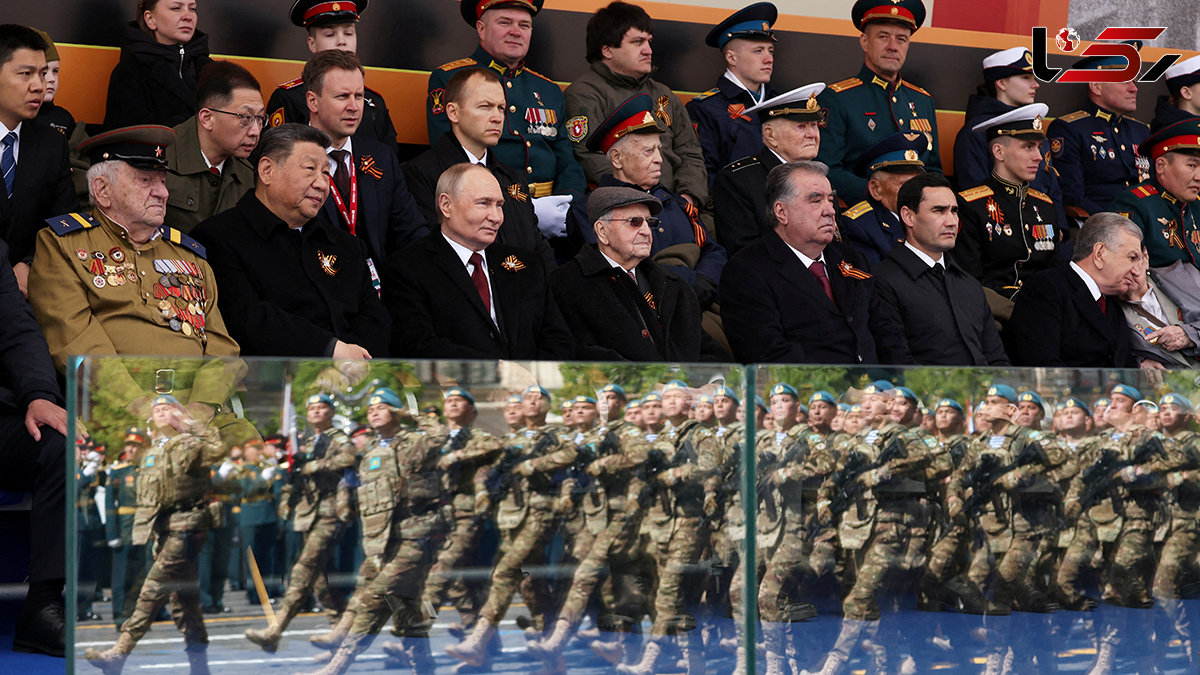Ukraine War Update: Ukraine Claims China Is Supplying Russia with Missile Target Intelligence
Rokna Political Desk: China is reportedly providing Russia with satellite intelligence to aid missile strikes in Ukraine, as Russian attacks intensify across the country, including deadly strikes on civilian infrastructure.

According to Rokna, citing The Guardian, a senior Ukrainian intelligence official has alleged that China is providing Russia with crucial satellite data to improve Moscow’s missile strikes inside Ukraine. Oleh Alexandrov, an official from Ukraine’s Foreign Intelligence Service, told the state news agency Ukrinform that China is sharing satellite information on strategic targets, including facilities linked to foreign investors. “There is clear evidence of close cooperation between Russia and China in conducting satellite reconnaissance over Ukraine to identify and analyze strategic targets for strikes,” he said. “In recent months, some of these sites have been linked to foreign investments.”
Ukraine’s Air Force reported early on Sunday that the entire country remained under the threat of fresh Russian missile attacks, following hours of air raid alerts and warnings of drone and missile threats. Andriy Sadovyi, mayor of Lviv, a western Ukrainian city approximately 70km (43 miles) from the Polish border, said missiles were approaching the city after air defense systems had already engaged in repelling a Russian drone strike.
Poland deployed fighter jets on Sunday morning after Russian airstrikes in western Ukraine. “Polish and allied aircraft are now patrolling our airspace, while ground-based air defense and radar systems have been put on the highest state of alert,” Poland’s operational command said on X. According to Flightradar24, early Sunday, commercial flights were using alternative routes typically reserved for times when Lublin and Rzeszow airports near the Ukrainian border are closed.
Lithuania temporarily halted air traffic at Vilnius airport on Saturday due to potential balloons in its airspace, diverting flights to neighboring Poland and Latvia. Lithuania, a strong supporter of Ukraine, shares a 679km border with Belarus, a close Russian ally. The incident follows recent drone sightings and airspace violations at airports in Copenhagen and Munich.
In Zaporizhzhia, a Russian “combined strike” killed one woman and injured six others, according to Ivan Fedorov, the head of Ukraine’s southeastern region. Among the wounded was a 16-year-old girl receiving medical care.
In northern Ukraine’s Sumy region, two Russian drones targeted trains at a station, killing one person and injuring roughly 30 others. Eight were hospitalized, according to regional governor Oleh Hryhorov. Ukrainian President Volodymyr Zelenskyy condemned the attack as “brutal” on Telegram, posting videos showing destroyed passenger carriages with shattered windows. “The Russians could not have been unaware that civilians were targeted. This is terrorism, and the world must not ignore it,” Zelenskyy wrote.
Oleksandr Pertsovsky, head of Ukraine’s railways, said Russia is escalating attacks on rail infrastructure to isolate frontline communities before winter. “We are witnessing increased enemy strikes on railway networks. These attacks have no military objective; they aim solely to instill panic and disrupt connectivity,” he said.
On Saturday, Ukraine’s military reported another strike on one of Russia’s largest oil refineries. A nighttime drone attack caused explosions and a fire at the Kirishi refinery near St. Petersburg, over 1,200km (745 miles) from Ukraine’s border. Telegram channels from Russia and Ukraine shared videos showing drone-like objects against a night sky lit by orange glows, with explosions in the background. Local governor Alexander Drozdenko reported seven drones were shot down overnight, and a fire in the industrial zone was extinguished, though he did not provide damage details. Ukraine has previously targeted the Kirishi refinery, with the latest reported strike on September 14.
Meanwhile, Czech populist billionaire Andrej Babiš’s victory in parliamentary elections is expected to reduce the country’s support for Ukraine. Babiš stated he would reassess a Czech-led international initiative to supply artillery shells to Ukraine, launched by the previous government, and “discuss it with President Zelenskyy” if needed. He added, “We are clearly pro-European and pro-NATO,” attempting to dispel concerns that he might align the Czech Republic with EU countries like Hungary and Slovakia that refuse military support for Ukraine and oppose sanctions on Russia.
Send Comments